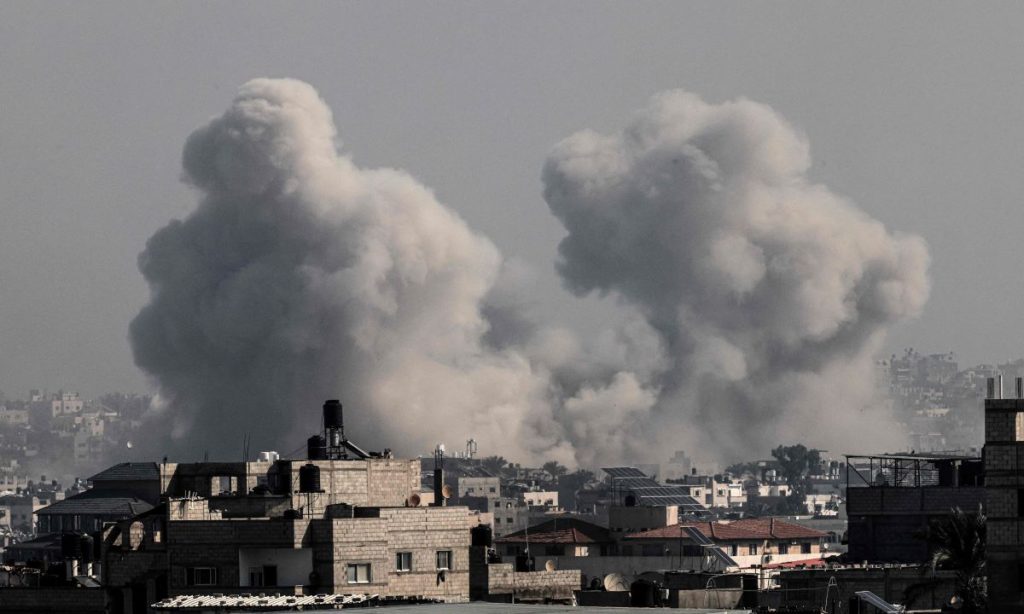US reported maritime protection force in the Red Sea to have limited effect in curbing conflict spillover

US Secretary of Defense Lloyd Austin is reportedly set to announce an expanded maritime protection force involving Arab states in the Red Sea in response to the escalating attacks against Israel-bound cargo ships by Yemen's Houthi rebel group. Chinese analysts said by doing so, Washington aims to force its regional allies to become more involved in curbing the spillover of current Palestinian-Israeli conflict, but predicted that the move would play only limited role in pacifying the situation.
Washington should do more to solve the Palestine-Israel conflict than to put in place superficial moves, Chinese experts said, noting that US hypocrisy of calling for cease-fire between Israel and Palestine but constant blocking of UN resolutions on demanding cease-fire in fact fueled Israel's determination of continued military actions.
Being the latest Biden administration official to visit Israel, Austin, who arrived in Israel on Monday, is to gain a clearer assessment from Israeli officials on their military operations, CNN reported.
AP said that Austin is also expected to press Israel to wind down major combat operations in Gaza.
Austin is also expected to announce an expanded maritime protection force, to be known as Operation Prosperity Guardian, involving Arab states combatting increasingly frequent Houthi attacks being mounted from Yemen's ports on commercial shipping in the Red Sea, the Guardian reported. Yet the report revealed no details over which Arab states are expected to join.
Protection of shipping routes in the Red Sea is probably the key agenda behind Austin's visit, as the current Palestinian-Israeli conflict has exerted a huge impact on global economy, Liu Zhongmin, a professor at the Middle East Studies Institute of Shanghai International Studies University, told the Global Times on Monday. He said the Houthi rebel group's attacks have created a dilemma for the US.
The attacks, targeting a route that allows East-West trade, especially of oil, to use the Suez Canal to save the time and expense of circumnavigating Africa, have pushed some shipping companies to re-route vessels to avoid the area. For example, French shipping group CMA CGM on Saturday said it was pausing all container shipments through the Red Sea after an attack on one of its container ships, MSC Palatium III, one day earlier, per Reuters.
The US is hoping that regional allies become more involved in curbing the spillover effect of current conflict via the proposed protection force, which in reality will only have limited effect, Liu said.
Experts noted that the fundamental solution is to continue to call for cease-fire between the conflicting sides, whilst responding violence with violence will only fuel the current conflict.
France, the UK and Germany -some of Israel's closest allies- joined global calls for a cease-fire over the weekend, and Israeli protesters have demanded the government relaunch talks with the militant group on releasing more hostages after three were mistakenly killed by Israeli troops while waving a white flag.
In response, Israeli Prime Minister Benjamin Netanyahu has insisted that Israel will keep fighting until it removes Hamas from power, crushes its military capabilities and returns the hostages, the New York Times reported on Sunday.
Liu noted that the increasing international and domestic pressure are not enough for Israel to change its military action in Gaza as those pressure are mostly at surface level. Moreover, the US is calling for cease-fire in public, yet it is giving Israel green light in the UN by opposing UN's cease-fire resolutions.